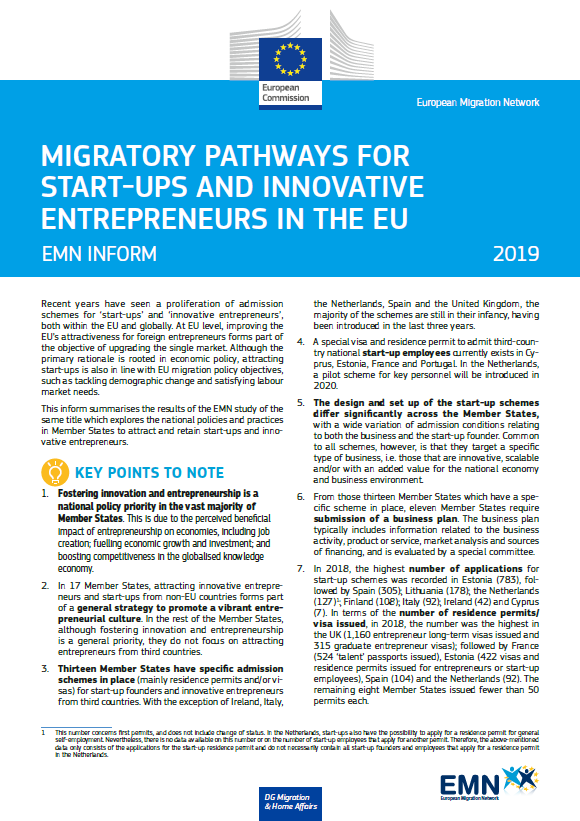This inform summarises the results of the EMN study on Migratory Pathways for Start-Ups and Innovative Entrepreneurs in the European Union.
Key findings:
- Fostering innovation and entrepreneurship is a national policy priority in the vast majority of Member States.
- In 2018, the highest number of applications for start-up schemes was recorded in Estonia (783), followed by Spain (305); Lithuania (178); the Netherlands (127); Finland (108); Italy (92); Ireland (42) and Cyprus (7).
- One of the most important ‘pull’ factors for founders/employees is the Member States’ start-up scene and the presence of hubs and locations with well-developed ecosystems where start-ups can develop and grow.
- In 17 Member States, attracting innovative entrepreneurs and start-ups from non-EU countries forms part of a general strategy to promote a vibrant entrepreneurial culture.
- Thirteen Member States have specific admission schemes in place.
- From those thirteen Member States which have a specific scheme in place, eleven Member States require submission of a business plan.
- Access to funding and investments (e.g. micro-loans) is available for start-ups in most Member States.
- A special visa and residence permit to admit third-country national start-up employees currently exists in Cyprus, Estonia, France and Portugal.
- Migration-specific incentives to attract start-up founders and innovative entrepreneurs include: online application systems, fast-track and shortened processing times, reduced documentary requirements, and assistance and support from relevant institutions with the immigration process.
- The design and set up of the start-up schemes differ significantly across the Member States, with a wide variation of admission conditions relating to both the business and the start-up founder.
- Member States without a specific scheme use other channels to admit start-up founders.


